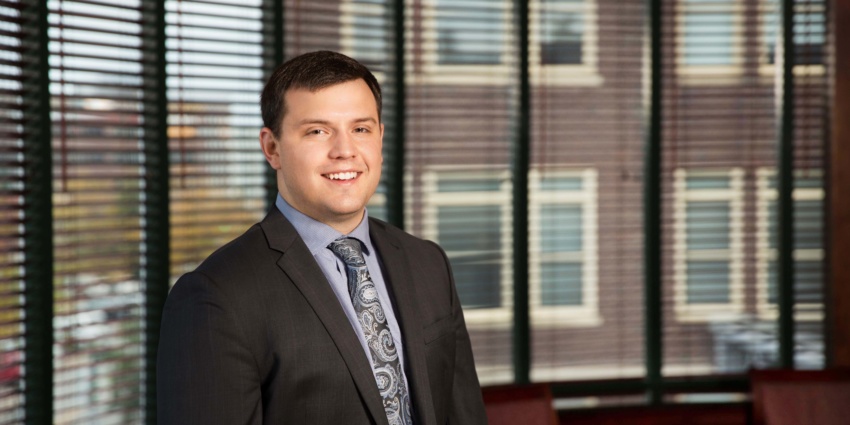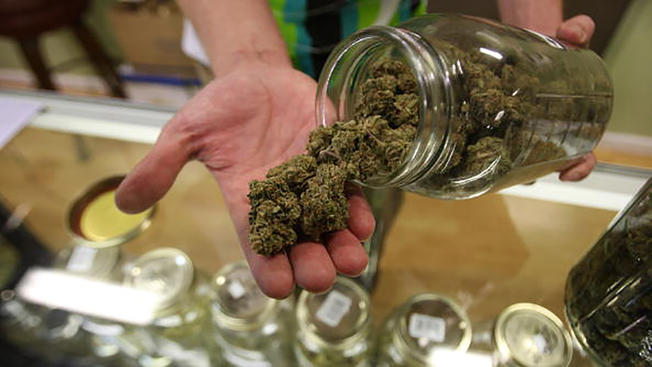Physicians can now sign up to join Pennsylvania’s medical marijuana effort“Any M.D. or D.O. who treats patients with any of 17 qualifying conditions should register with the state,” Rachel Levine, the state’s acting secretary of health, said Wednesday as she announced the official start of doctor participation in the program.
The success of the marijuana program, which is set to begin in early 2018, will depend on getting physicians involved quickly. In New York and New Jersey, patient access to medical marijuana and cannabis-derived medicines has been tightly restricted because relatively few doctors are participating. About 900 of New York’s 96,000 physicians have signed up.
Physicians will be required to take a four-hour course either online or in person to do that. The course, which will cost about $500, will qualify for continuing education credits. Levine said the state had approved two providers to teach the class, the Answer Page and Extra Step Assurance, but added that other educational services could be announced shortly.
State regulations prohibit doctors from advertising their services to write cannabis recommendations. Physicians also may not hold a direct economic interest in a growing operation or a dispensary. They may not write recommendations for themselves or family members.
Qualifying conditions include ALS, autism, cancer, Crohn’s disease, chronic neuropathic pain, epilepsy, glaucoma, HIV/ AIDS, Huntington’s disease, inflammatory bowel disease, intractable seizures, MS, neuropathies, Parkinson’s disease, PTSD, sickle cell anemia, and spinal cord damage resulting in intractable spasticity.
The Inquirer spoke with Levine on Wednesday.
Q: What are the incentives for physicians to join?
Levine: The incentive for providers is to be able to provide excellent care for their patients. We surveyed 191 physicians, and 75 percent said they were interested in the program and wanted to participate. There’s no financial incentive for them to do it, but if patients are asking for (medical marijuana), it may cause them to take the course.
Q: Should all doctors take the classes whether or not they intend to participate, and who is best suited to take it?
Levine: It’s not essential they all take the classes. But we want physicians to have an open mind about medical marijuana. They’ll learn about the benefits, and any potential risks, through the continuing medical education course. It may not be necessary for every family physician if they don’t treat the qualifying conditions. But the conditions are broad and serious enough so that many will want to be involved.
Physicians I know who are pediatric neurologists can best benefit. For children with intractable seizures that can’t be treated with traditional medicines, there’s evidence that medical marijuana compounds that contain cannabidiol (CBD) can be helpful.
Q: How many doctors will be required to ensure the program’s success?
Levine: I don’t have a specific number, but we want a good geographic distribution.
Q: What steps should an interested doctor take to join?
Levine: Physicians should apply to the department to register, They’ll need to demonstrate that by training or expertise they can treat the conditions, complete the four-hour course, and they must hold a valid and unsuspended license.
Q: How do patients find a participating doctor?
Levine: There will be a database on the Department of Health website with a list of approved physicians.
Q: Will the way this is set up require patients to nudge their doctors to participate?
Q: Not every state has a physician registry. States that don’t include Michigan, Maine, Delaware, Massachusetts, Oregon, Washington, and Colorado. How will Pennsylvania avoid a New York-styled bottleneck?
Levine: Over the next six months, we’ll recruit physicians to participate. By starting now, we’ll be more successful. Already, Pennsylvania doctors have provided 282 safe-harbor letters for children to go to other states for their medical marijuana before it becomes available here.
Q: Would you consider eliminating the registry eventually?
Levine: I don’t see a time we would do that. I think it’s very important we have the registry and that physicians take the course. This is a topic not traditionally taught in medical school. But it’s also what the law requires. I don’t see us going to the legislature to ask to change that. It’s an important component and ensures that physicians have the information to make a determination to see if the patient will benefit.
Q: You’ve spoken about using medical marijuana to help alleviate the opioid epidemic. How would that work?
Levine: One of the qualifying conditions is chronic or intractable pain of neuropathic origin, or pain where conventional therapy isn’t working. States that have medical marijuana programs have a lower incidence of opioid use and a lower overdose rate. But this is not going to fix the opioid epidemic. It’s just one tool in the toolbox for physicians to treat chronic pain without opioids.
As part of our expanded prescribing guidelines for opioids, we’ll include a new section on treating chronic pain. So that will include other nonsteroidal anti-inflammatory drugs like Advil, treatments like occupational therapy and osteopathic manipulation, complementary treatments like acupuncture, and we will have a small section about medical marijuana. It’s the biggest health crisis we have, and we need to bend the curve to reduce the number of opioids that are being prescribed.
Q: After a doctor registers and writes a recommendation, what does the patient need to do?
Levine: The patient takes the recommendation and applies to the Department of Health for a medical marijuana identification card. The ID card, which will have the patient’s picture on it, can be carried in their wallet. They’ll be in our database. The patient regulations, which will detail the process, are being drafted and expected to be released within the next few months.
Q: Can the doctor make a determination that medical marijuana is not working or is no longer needed?
Levin: Yes. If the physician determines that the patient no longer needs it or if the patient is no longer under their care, the doctor can alert the state.
Q: How much say does the doctor have in what cannabis medicine the patient consumes?
Levine: The doctor can suggest the form of the medical marijuana product. In Pennsylvania, only refined oils, creams, tinctures, and vape cartridges will be dispensed. Doctors can suggest doses and the ratio of THC to CBD. The ultimate decision on dose and ratio, though, will be determined between patient and the medical professional at the dispensary.
Q: Are there any elements of the program that keep you up at night?
Levine: There’s nothing that keeps me up at night. It’s a very high-quality program.
Q: Synthetic THC products such as Marinol have been for sale for decades. They’re legal and approved for sale by the FDA. Will those products be available at dispensaries?
Levine: (Marinol) is not a great drug. It’s not been shown to be helpful for these conditions. So, no. And these dispensaries are not pharmacies. Anything sold at the dispensary, by law, has to be generated by a Pennsylvania grower-processor and has to have been tested by state-approved laboratories.
Q: Should medical marijuana be considered a first line solution or only as a last resort?
Levine: I‘m not here to get involved in the sacred patient-doctor relationship, so that’s a decision to made between them.
Q: The Department of Justice will likely issue a report about cannabis on Thursday that could have serious repercussions for medical marijuana programs across the country. Do you foresee it putting a chill on the Pennsylvania program and could it cause doctors to think twice about signing up?
Levine: It’s hard for me to predict what the federal government will do from one day to the next. We’ll see what they do and act accordingly. However, we’re optimistic. Pennsylvania’s program has bipartisan support and will continue to move forward. I really don’t want to comment about what the Attorney General might do.
Q: Is there any mechanism in place to protect doctors from federal prosecution?
Levine: We only have jurisdiction over Pennsylvania law. Doctors are licensed by the individual states. A physician cannot be prosecuted under Pennsylvania law for being part of the program.
credit:philly.com













